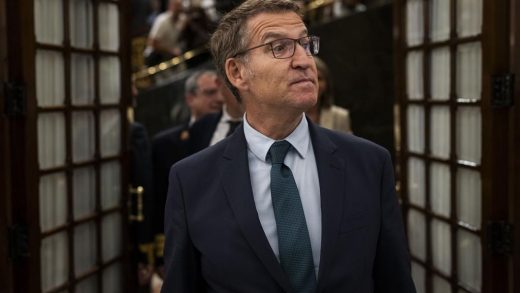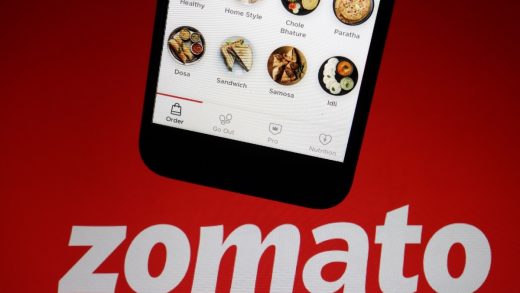Unusual mix of possible candidates line up for Chicago’s first school board elections this fall

CHICAGO (AP) — A Grammy-winning rapper, progressive activists and a leader of an afterschool squash program are part of the eclectic mix of possible candidates lining up for Chicago’s first school board elections this fall.
America’s third-largest city has long been an outlier with a mayor-appointed board overseeing its public schools, and it took years of advocacy and legislative squabbles to reach this point. But the messiest part is likely yet to come.
The historic November races are part of a multi-year transition that is hard to explain to voters. Special interest groups are taking notice. And questions loom about how the new 21-member board, triple the current size, will govern.
“This is not a political race, this is a movement,” said rapper Che “Rhymefest” Smith, who is among dozens of hopefuls who filed fundraising paperwork. “Everyone in this city has a responsibility to the children who are going to be served.”
Potential candidates are circulating petitions while educating voters about the inaugural contests. Many are parents, advocates and former educators making their first foray into politics, navigating a steep learning curve with little name recognition or cash.
While legislators approved an elected board in 2021, the logistics, including political maps, weren’t settled until March. The board won’t be fully elected until 2027.
Residents, divided into 10 sprawling districts, will vote for board members to take office next year. The mayor will then appoint 10 other board members from smaller subdistricts along with a citywide president. In 2026, voters will elect all 21 members, eventually for four-year terms.
“It takes almost a flow chart to figure it out,” said Adam Parrott-Sheffer, a former principal touting his experience to run in the same South Side district as Smith.
Conversations with potential supporters involve more explanation on process than issues, he says.
Parent Kate Doyle, who founded a nonprofit, hopes to represent a North Side district. After knocking on hundreds of doors, she found one person, a teacher, who fully understood what’s coming.
Chicago’s Board of Education — which passes a $9 billion budget, confirms a CEO and approves policies and contracts — was created by state legislators in 1872. After many versions, a seven-member board was instituted in 1999. The roughly 325,000-student district, serving largely low-income Black and Latino children, has grappled with budget cuts and dwindling population.
Interest in elected representation gained momentum after former Mayor Rahm Emanuel closed over 50 schools in 2013.
The Chicago Teachers Union, among the groups pushing the change, deems it a voting rights issue.
“An elected school board brings people from those spaces that have been neglected and disinvested to a table where they have some agency,” said CTU President Stacy Davis Gates.
Over 90% of school boards are elected, according to the National School Boards Association. Few school districts have recently changed from an appointed school board to an elected one, leaving Chicago without a roadmap.
One fellowship program through National Louis University is trying to ease Chicago’s transition with training for potential board members. Most of the 22 current fellows enrolled hope to get on the November ballot. They’re learning how to engage with the public and tactics for group decision making.
“If this program can shorten that learning curve a little bit, that could have a really positive tremendous impact on the students in the city,” said Bridget Lee, who oversees the program.
Candidates face numerous hurdles, including a truncated campaign season.
The jobs, which district officials estimate require up to 30 hours of time weekly, are unpaid, limiting who can afford to run. At least 1,000 signatures are required to get on the ballot, more than double the number for aldermanic and some congressional candidates with paid political operations.
Anusha Thotakura, a 25-year-old activist with the progressive Citizen Action Illinois, collected 600 signatures in a district that includes wealthy and low-income neighborhoods.
“This board presents a lot of hope for people about having accountability,” she said.
Smith fanned signed petitions on the dining table at his great-grandmother’s South Side home where he lives.
“In Chicago, this is money,” the 46-year-old joked. Still, he’s putting $80,000 into his bid and has written a campaign song titled “Optimistic.”
“People see a rapper and there’s a stigma to it,” said Smith, who made an unsuccessful 2011 City Council run. “I’m here to break stereotypes.”
Voter turnout in school elections is typically under 10%, according to the NSBA. The presidential contest is expected to help, though Chicago’s March primary turnout was the lowest in years at roughly 26%.
That adds weight to endorsements, including from the influential teachers’ union. Competition to get them is fierce.
One possible candidate, Yesenia Lopez, unveiled her campaign with Congressman Jesus “Chuy” Garcia’s backing before her campaign disclosure paperwork was filed.
Jesus Ayala, 32, hopes to run in the same Southwest Side district. He works at MetroSquash, a sports complex offering mentorship and other student programs through the racquet sport.
“When you have a congressman announcing someone’s candidacy, it feels like an elected official trying to appoint someone to the board,” he said.
Elsewhere, outside organizations have poured money into down-ballot school elections, making them proxy votes for controversial national issues. During Los Angeles’ 2017 board races, unions and pro-charter school groups spent $15 million.
In Chicago, charter schools groups are already getting involved.
Paul Vallas, a former superintendent and failed candidate for Chicago mayor, started a political action committee that could back candidates. Parents advocating to restore school bus service, which the district cut amid driver shortages, hosted the first candidate forum.
“The wild card in all of this is: Will there be national issues that are tangentially related that will bleed into the race?” asked Michael Ford, a University of Wisconsin-Oshkosh professor.
District officials have offered few details about how the board will operate. One thing raising eyebrows is its size.
“They are creating conditions for a lot of political infighting, more opportunities for deal brokering, things that have been synonymous with Chicago politics,” said Jonathan Collins, a Columbia University political scientist.
Los Angeles has seven board members while Houston has nine. In New York, the panel is partially appointed and recently increased from 15 to 23.
Illinois state Sen. Rob Martwick, who championed an elected board, said more districts were created to curb the influence of outside money. More legislative changes could follow, including campaign finance and board pay.
“Now the responsibility of making our schools better is in your hands, can’t blame the mayor anymore,” Martwick said. “Look in the mirror.”
Credit: Unusual mix of possible candidates line up for Chicago’s first school board elections this fall


